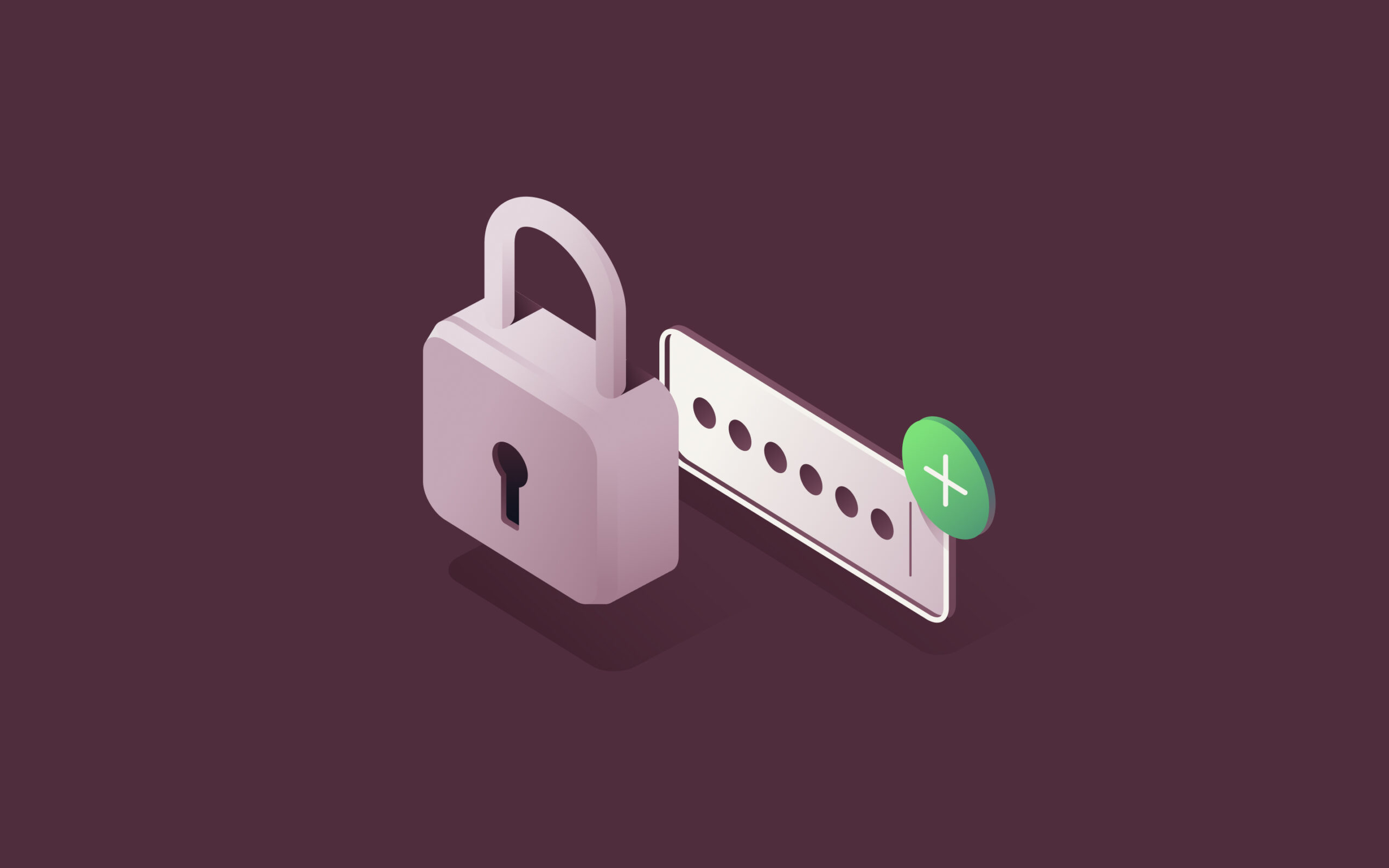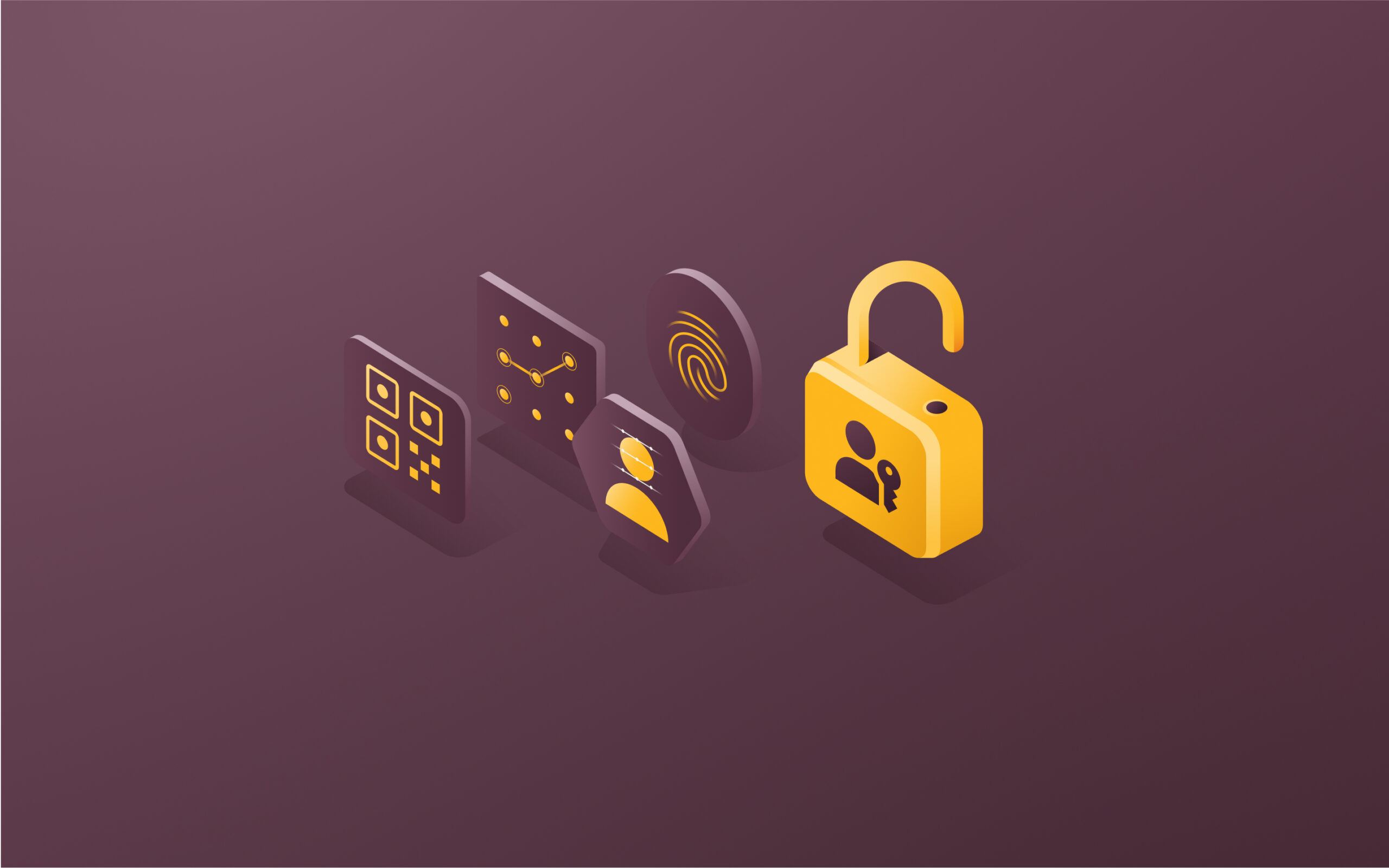The 10 best single sign-on (SSO) solutions for your business

Single sign-on (SSO) is an authentication method that allows users to securely access multiple applications and services using just one set of login credentials. Rather than having to remember separate usernames and passwords for each account, SSO enables a user to log in once and gain access to all the apps, websites, and data they need to do their job.
Real-world example: Imagine a busy marketing manager who needs to juggle a dozen different tools each day, from CRM and email marketing platforms to social media management and analytics dashboards. Without SSO, they'd waste valuable time and mental energy logging into each one separately, not to mention the security risks of weak, reused passwords. SSO transforms this fragmented experience into a seamless flow, where a single secure login grants access to everything they need.
Under the hood, SSO works through a trust relationship between an application (the service provider) and an identity provider (IdP). When a user attempts to access the application, they are redirected to the IdP to enter their single set of login credentials. The IdP then authenticates the user and sends a token back to the application confirming a successful login. The application grants the user access based on this trusted token without requiring separate login details.
Implementing an SSO solution is important for businesses of all sizes. It bolsters security by enabling stronger password policies, simplifying credential management, and decreasing the attack surface. It also boosts productivity by eliminating time spent on separate logins and password resets. For these reasons, choosing the right SSO solution is a critical decision.
How to choose the best SSO solution
With many SSO providers on the market, it's important to select one that fits your organization's specific needs. Here are some key factors to consider when evaluating different solutions:
Compatibility with your systems
The SSO solution you choose must integrate seamlessly with your existing IT environment. Assess compatibility with your current operating systems, cloud services, on-premises apps, mobile device management tools, and identity repositories like Active Directory. Aim for a solution with pre-built connectors for your core business apps to minimize custom integration work.
Scalability to support future growth
As your organization evolves, your SSO solution needs to scale accordingly. Consider both increases in user volume as your workforce grows and the breadth of apps and services you may adopt in the future. Select a provider that can comfortably accommodate your scale-up plans without major reconfiguration or added complexity. Cloud-based solutions tend to provide greater scalability than on-prem ones.
Ease of use for administrators and end-users
SSO should make life easier for both IT admins and employees. For administrators, the ideal solution will offer intuitive policy configuration, broad app support, automated user provisioning/deprovisioning, and robust logging and auditing features. For end users, the login and account management experience should be as frictionless as possible across all devices. A clunky interface will lead to low adoption.
Security and compliance certifications
IT decision makers must ensure that their SSO solution meets relevant industry standards and regulations. Look for providers that maintain key security certifications like SOC 2, ISO 27001, and GDPR compliance. Robust certifications demonstrate a strong commitment to data protection and will make life easier during security audits and compliance checks.
Resilience and performance
SSO is a mission-critical service—any downtime or performance issues will disrupt employee access to essential apps. Evaluate each provider's uptime guarantees, disaster recovery practices, and performance track record. The best solutions run on highly resilient, geographically distributed infrastructure to ensure consistent authentication performance and availability.
Key features of SSO solutions
While specific capabilities vary, there are certain core features found in the best SSO solutions. Keep an eye out for the following when comparing providers:
User provisioning
Automated user provisioning is a must-have, especially for larger organizations. Being able to instantly provision and deprovision app accounts based on an employee's role and status is critical for efficient onboarding, seamless role changes, and secure offboarding.
Reporting for IT managers
Granular access logs, audit trails, and compliance reports give IT teams the visibility they need to maintain security and adhere to regulatory requirements. The best solutions provide detailed, real-time insights into account usage, authentication failures, and configuration changes through centralized dashboards and customizable alerts.
Multi-factor authentication
Multi-factor authentication(MFA) is a baseline security requirement for any SSO solution. Rather than relying solely on passwords, MFA requires additional proof of identity via a second factor like a hardware token, mobile app prompt, or biometric scan. This hugely reduces the risk of unauthorized access, even if passwords are compromised.
Adaptive authentication
While MFA is a powerful control, it can also be disruptive if applied in a blanket fashion. Adaptive authentication solves this by dynamically adjusting authentication requirements based on contextual risk factors. For example, a low-risk login attempt from a known device and location might only require a password, while a high-risk attempt from an unknown device in a foreign country would trigger an MFA challenge.
Support for identity standards
To ensure broad compatibility and future-proofing, choose an SSO solution that supports widely used identity standards and protocols. Key ones to look for include SAML (Security Assertion Markup Language), OIDC (OpenID Connect), OAuth, and SCI (System for Cross-domain Identity Management). Adherence to these open standards will make it much easier to integrate new cloud services and adapt to evolving IT requirements over time.
Top 10 single sign-on (SSO) solutions and providers
Let's take a closer look at some of the top SSO providers on the market and what sets them apart.
Rippling
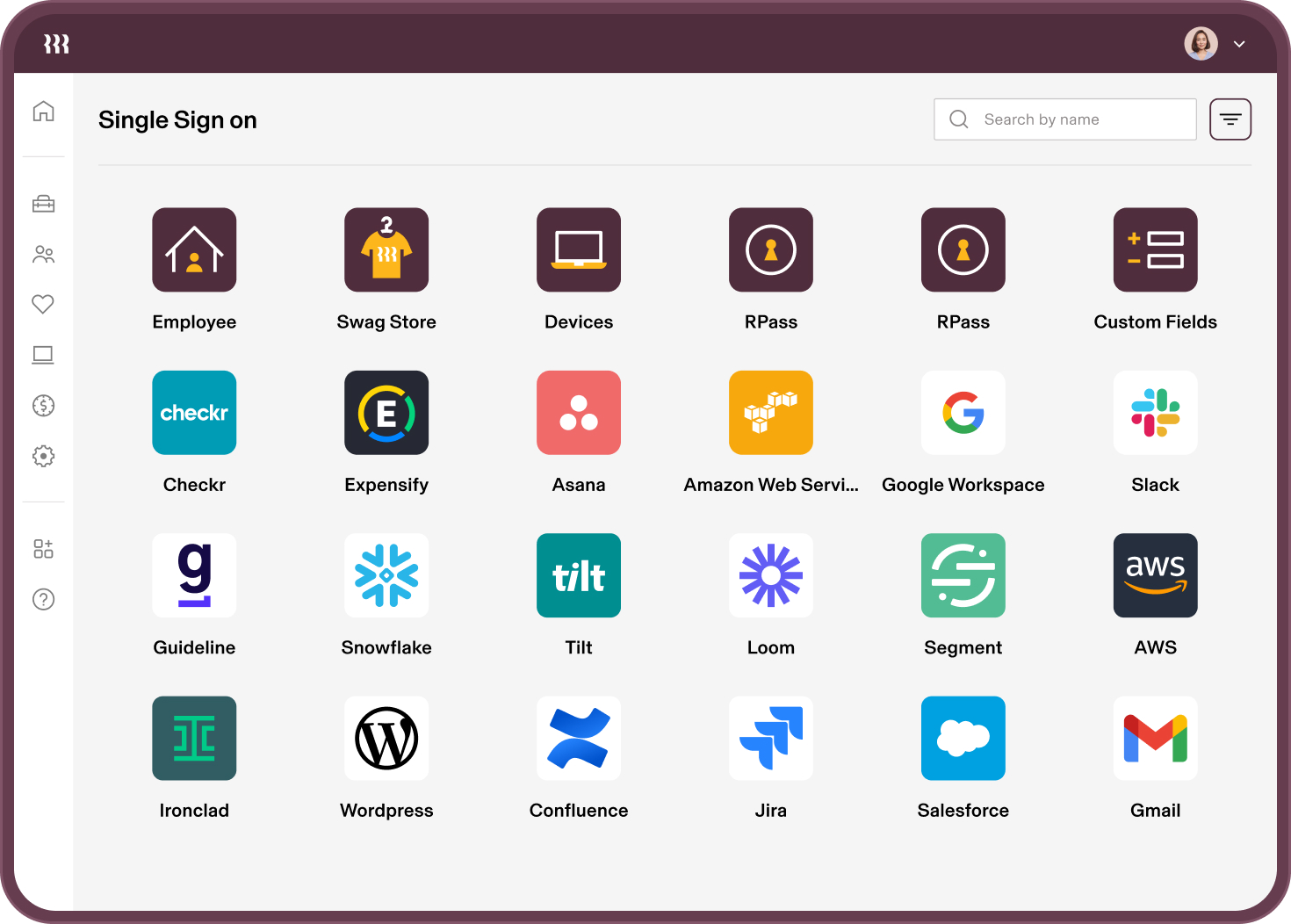
Rippling offers a comprehensive SSO solution that integrates seamlessly with its robust HR platform. By unifying identity and access management (IAM) with employee data, Rippling provides powerful security automation and customization options not found in specialized SSO tools.
With an extensive library of 600+ pre-built integrations and flexible policy engine, Rippling enables organizations to easily manage user access across applications while enforcing granular security controls based on employee attributes and business rules.
Key features of Rippling
- Automated user provisioning and deprovisioning based on HR data like role, department, and employment status
- Granular access policies and dynamic group membership powered by custom user attributes
- Behavioral analytics to detect and block suspicious login attempts based on factors like location and device
- Flexible MFA policies to enforce risk-based access controls
- Centralized visibility and management of app access permissions across the organization
Benefits:
- Deep integration between SSO and HR enables advanced security automation
- Broad customization options to tailor access policies to unique business needs
- Powerful security features like behavioral analytics and adaptive MFA
- Unified platform approach streamlines IT admin experience
Okta

Okta is an identity and access management platform that provides secure SSO, MFA, and user lifecycle management. With over 7,000 pre-built integrations, Okta enables seamless access to a wide range of cloud and on-premises applications while offering full-featured security controls and centralized user management.
Key features of Okta
- SSO with support for SAML, OIDC, and other standard protocols
- Adaptive MFA with context-aware policies
- Automated user provisioning and deprovisioning across applications
- Extensive integration network with over 7,000 pre-built connectors
Benefits:
- Enhances security posture with strong authentication and granular access controls
- Simplifies user lifecycle management with automated provisioning workflows
- Offers a broad integration ecosystem to support diverse IT environments
Entra
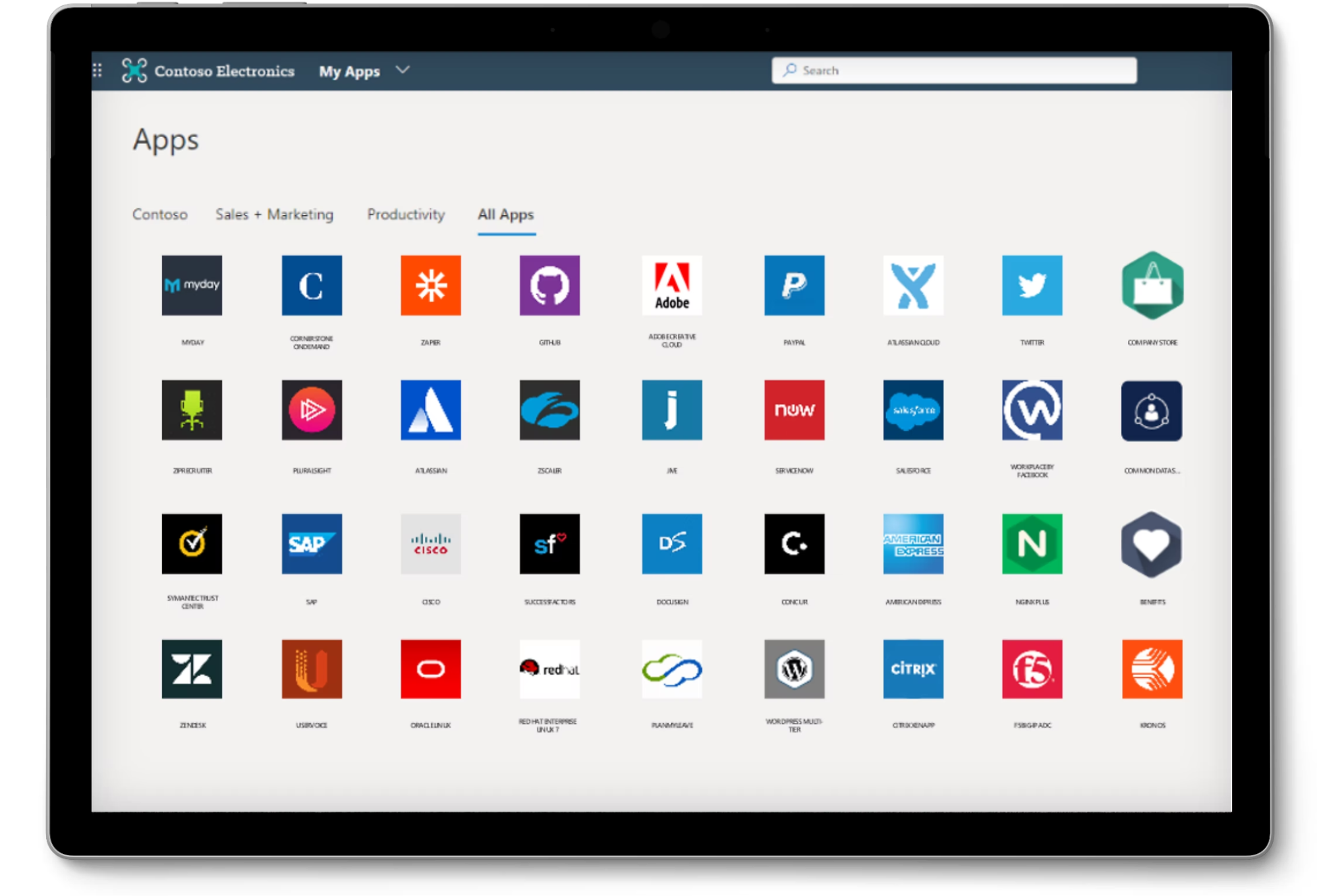
Entra is Microsoft's comprehensive identity and access management solution that brings together Azure Active Directory and other identity-related services under a unified brand. It aims to secure access for all users, devices, and applications across hybrid and multi-cloud environments while providing a seamless and productive user experience.
Key features of Entra
- Conditional access policies to enforce granular access controls based on user, device, location, and risk factors
- Passwordless authentication options including Windows Hello, FIDO2 security keys, and Microsoft Authenticator app
- Cloud provisioning and governance to automate user lifecycle management across connected apps and services
- Identity protection with AI-powered threat detection, risk-based access policies, and continuous user and session monitoring
Benefits:
- Tight integration with Microsoft 365 and Azure services for a unified identity experience
- Detailed security controls to enable zero trust access and protect against identity-based threats
- Extensive self-service capabilities for end-users to manage passwords, devices, and app access
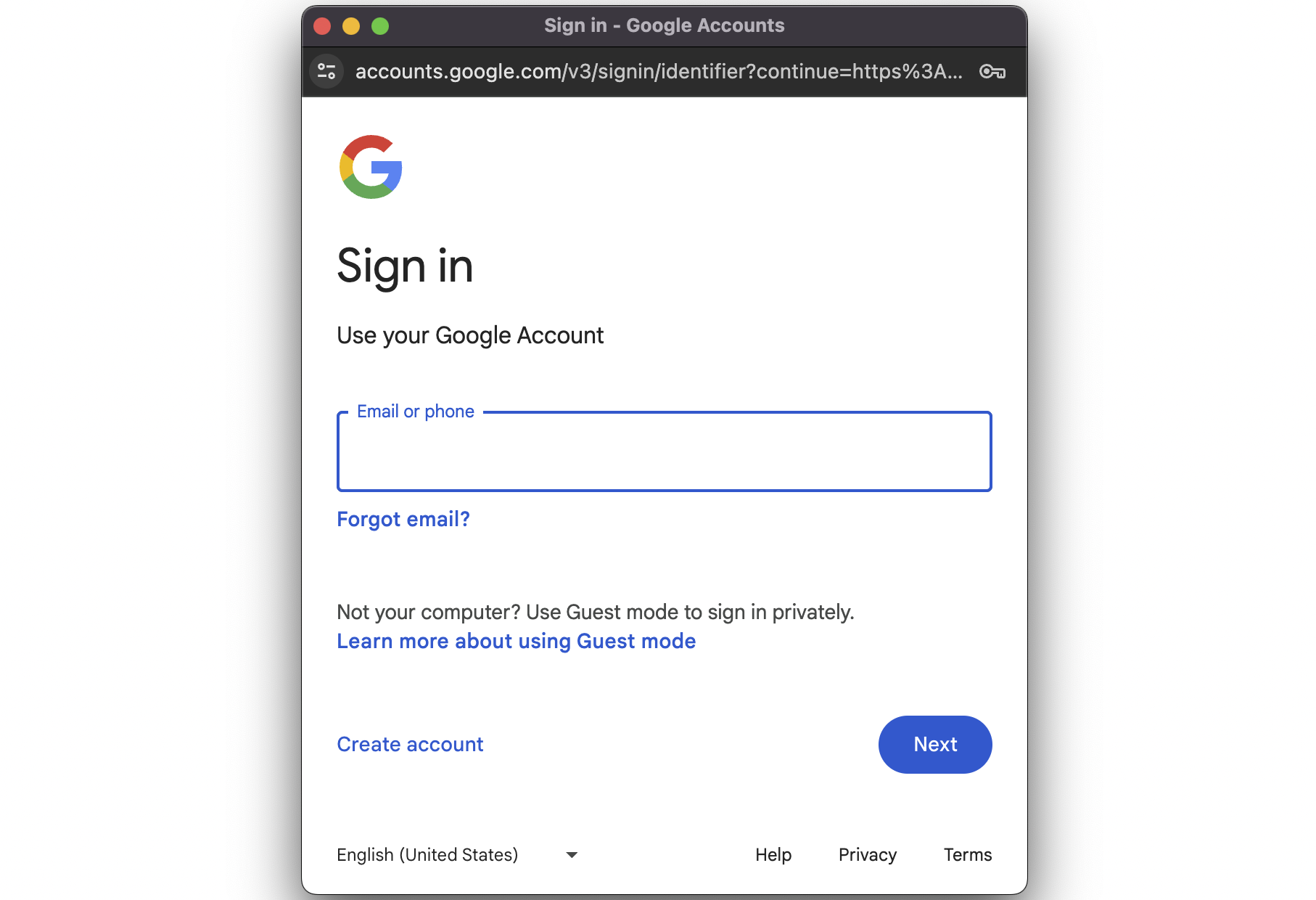
Google offers a robust SSO solution that allows users to access multiple Google services and third-party applications with a single set of credentials. Built on top of widely adopted standards like SAML and OIDC, Google's SSO integrates seamlessly with popular identity providers, enabling organizations to extend their existing authentication systems to the cloud.
Key features of Google
- SAML-based SSO for easy integration with external identity providers
- Granular access controls with Google's cloud identity and access management system
- Automatic user provisioning and deprovisioning through Google cloud directory sync
- Secure authentication with phishing-resistant FIDO security keys and Google authenticator
Benefits:
- Strong integration and consistent experience across Google Workspace and Google Cloud platform
- Offers strong authentication options including hardware security keys and Google prompt
- Enables automatic user provisioning and deprovisioning for connected third-party apps
JumpCloud
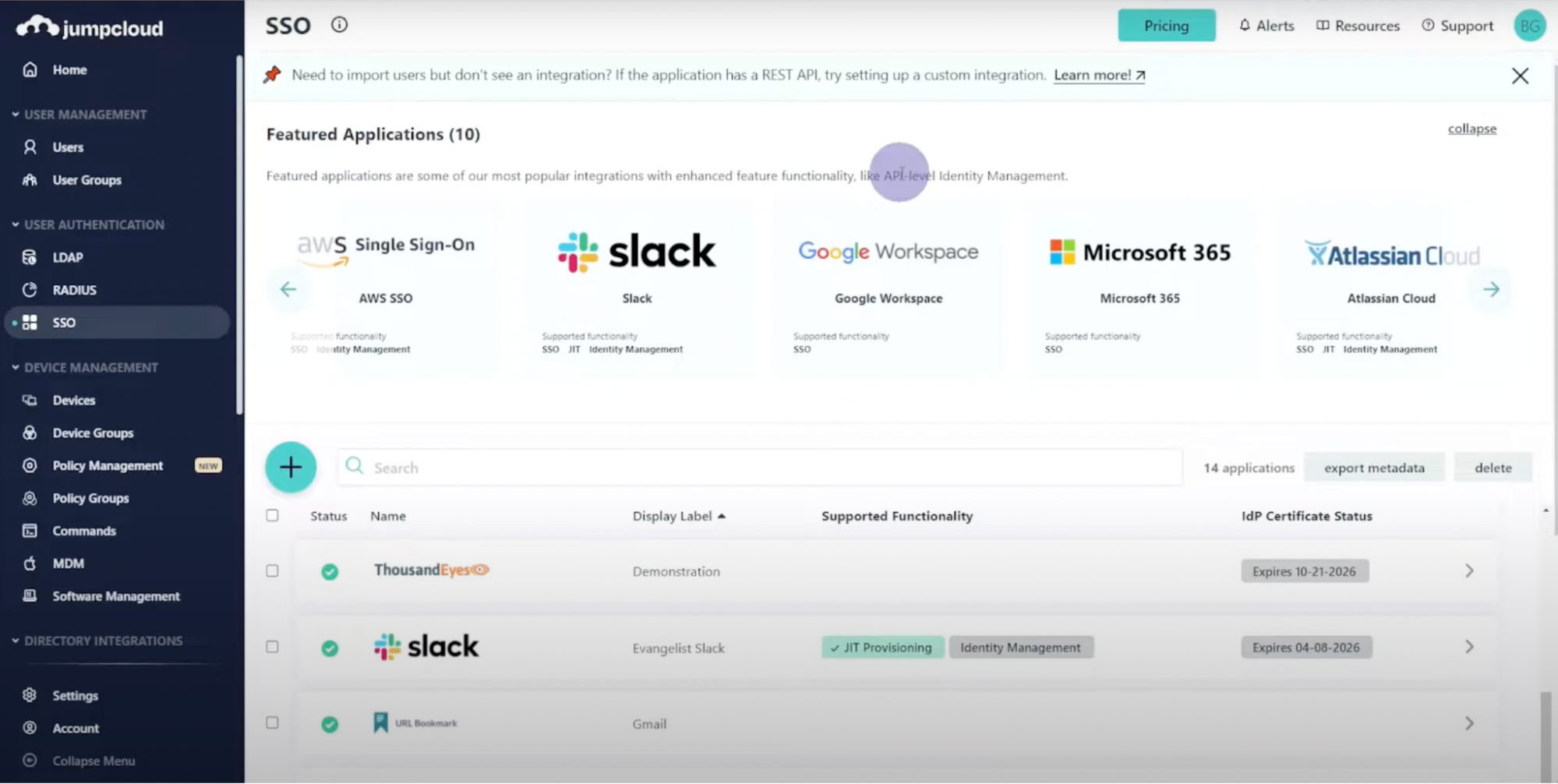
JumpCloud is a cloud directory platform that unifies identity, access, and device management across Mac, Windows, and Linux systems. By combining SSO, MFA, and a host of other features, JumpCloud enables organizations to securely manage and connect users to their systems, applications, files, and networks.
Key features of JumpCloud
- Cloud-based directory service to manage user identities and access across devices and applications
- Seamless SSO with SAML 2.0 and LDAP support for a wide range of applications
- MFA options including TOTP, Duo Security, and YubiKey for enhanced security
- Cross-platform device management for Mac, Windows, and Linux systems from a centralized console
Benefits:
- Eliminates the need for on-premises Active Directory infrastructure and simplifies hybrid environment management
- Provides a single pane of glass for managing user identities, access permissions, and devices
- Offers extensive integration options with popular cloud services, applications, and protocols
OneLogin
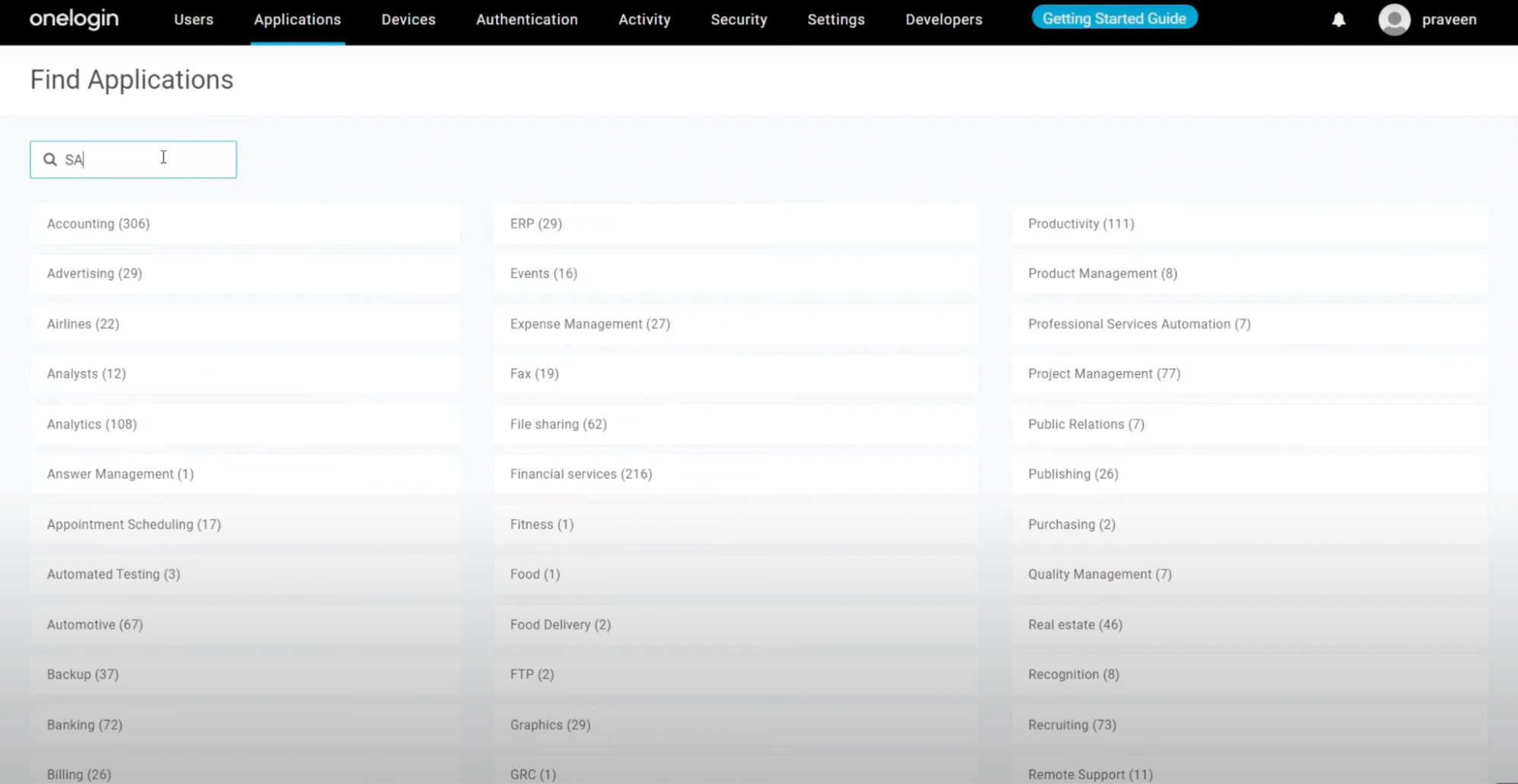
OneLogin is a cloud-based identity and access management platform that enables secure SSO, MFA, and user provisioning for web and mobile apps. With an extensive catalog of pre-integrated applications and support for key identity standards, OneLogin simplifies access management across SaaS and on-premises environments.
Key features of OneLogin
- Unified access portal for end-users to easily launch all their assigned apps with a single set of credentials
- Adaptive authentication policies leveraging factors like user location, device, and behavior to assess risk
- Automated user provisioning and deprovisioning based on user roles and HR data from directory systems
- Developer APIs and toolkits to enable SSO and user management for custom and in-house apps
Benefits:
- Simplifies IT workflows through automated provisioning and flexible directory integrations
- Accelerates rollout of new cloud apps with an extensive catalog of pre-built connectors
- Provides a seamless login experience across mobile and web applications
Ping
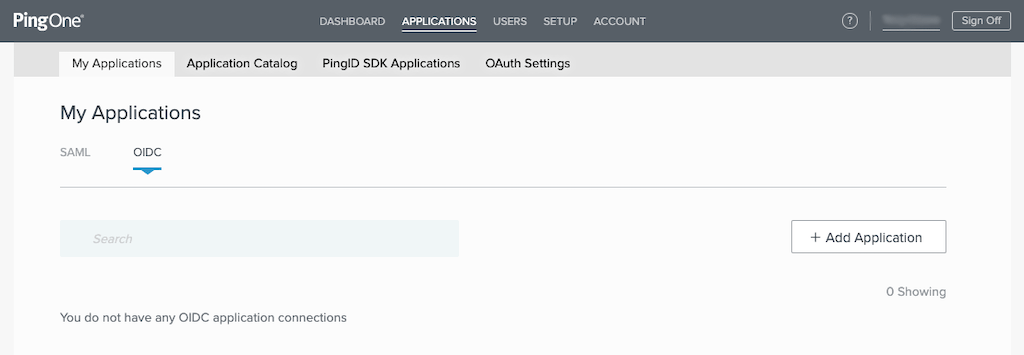
Ping is a comprehensive identity security platform that enables enterprises to provide secure and seamless access for employees, partners, and customers across cloud, mobile, and on-premises applications. With capabilities spanning SSO, MFA, directory services, and more, Ping empowers organizations to centrally manage and secure identities at scale.
Key features of Ping
- Intelligent access policies to dynamically adapt authentication requirements based on user behavior and context
- Broad integration support for legacy and cloud applications through SAML, OIDC, and other identity standards
- Centralized administration console for managing user identities, access permissions, and security policies
- Flexible deployment options including identity-as-a-service (IDaaS), self-hosted software, and hybrid models
Benefits:
- Offers a complete identity platform with integrated SSO, MFA, directory, and security capabilities
- Provides extensive customization options to tailor authentication flows and user experiences
- Supports a wide range of identity standards and protocols for compatibility with diverse application environments
LastPass
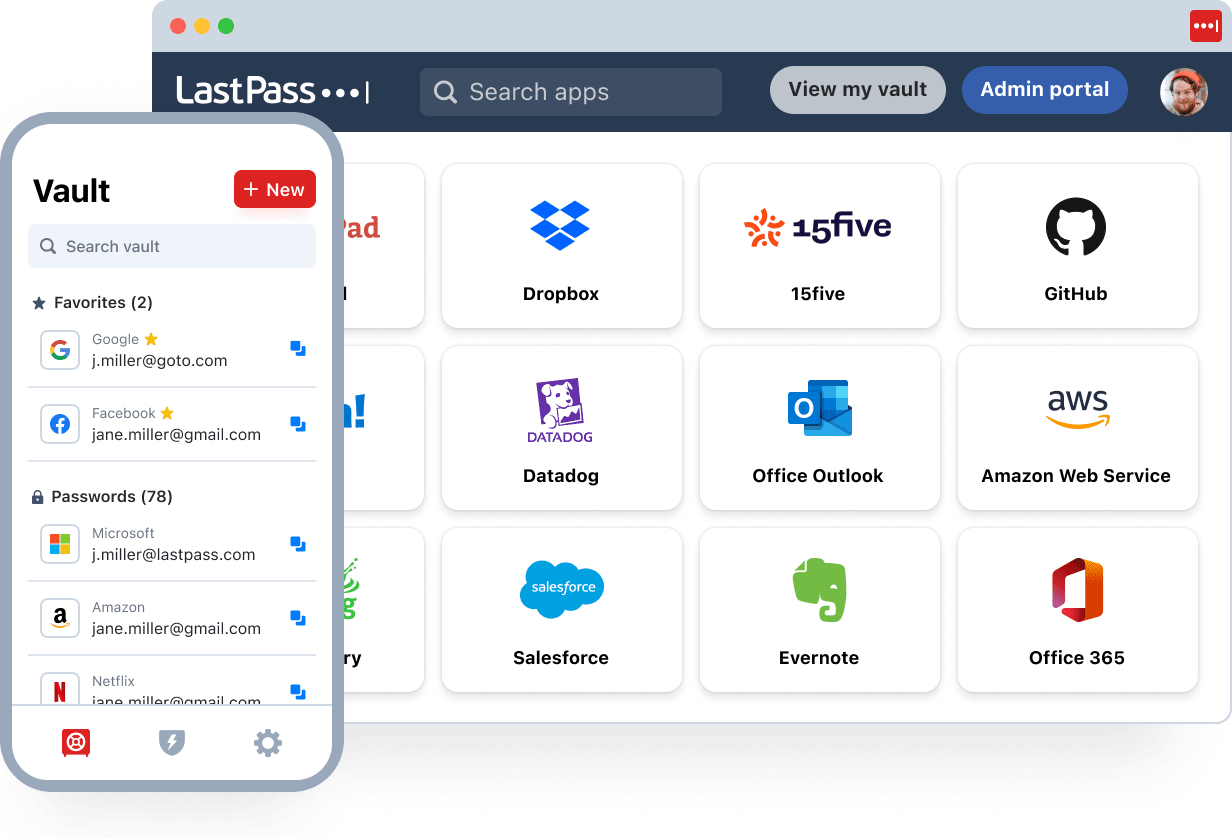
LastPass is a password management and SSO solution that helps individuals and businesses safeguard their online accounts and improve productivity. With a user-friendly interface and robust security features, LastPass enables users to store, manage, and automatically fill login credentials across devices, while providing IT admins with centralized control and visibility.
Key features of LastPass
- Secure password vault to store and organize login credentials, credit cards, notes, and other sensitive data
- Automatic password capture and autofill functionality to streamline logins across websites and apps
- Password generator to create strong, unique passwords for each account
- Seamless syncing across devices and browsers for easy access to credentials on the go
Benefits:
- Simplifies password management for end-users, reducing password fatigue and improving online security hygiene
- Provides IT admins with granular access controls, security policies, and user lifecycle management capabilities
- Includes advanced features like dark web monitoring, password sharing, and MFA
Cisco Duo
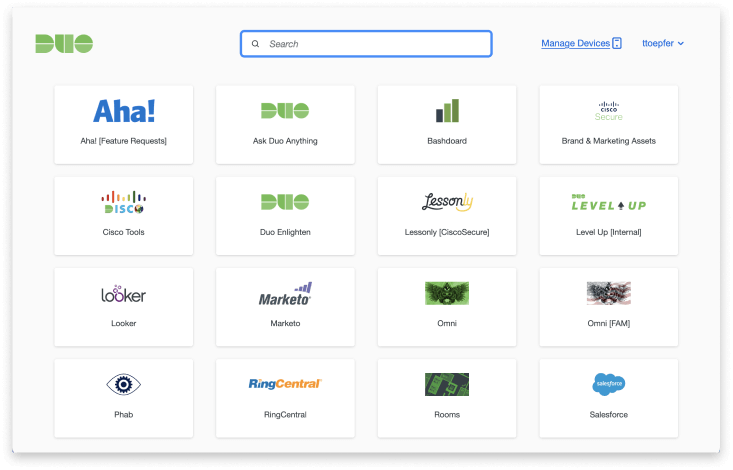
Cisco Duo SSO is a cloud-hosted service that simplifies and secures application access for end-users while offering easy setup and management for administrators. When combined with Duo's flexible MFA or passwordless authentication, it protects access to all platforms and applications for any user, device, and location.
Key features of Cisco Duo
- Centralized application dashboard for quick access to user applications
- SSO capabilities to streamline access to cloud and on-premises applications
- Device insight and control to monitor and manage endpoints and their security posture
- Passwordless authentication options, including biometrics and security keys, for a frictionless user experience
Benefits:
- Provides granular policy controls and risk-based access decisions to enforce zero trust principles
- Integrates with a broad ecosystem of applications, identity providers, and security tools
- Reduces password fatigue and associated help desk costs
SecureAuth
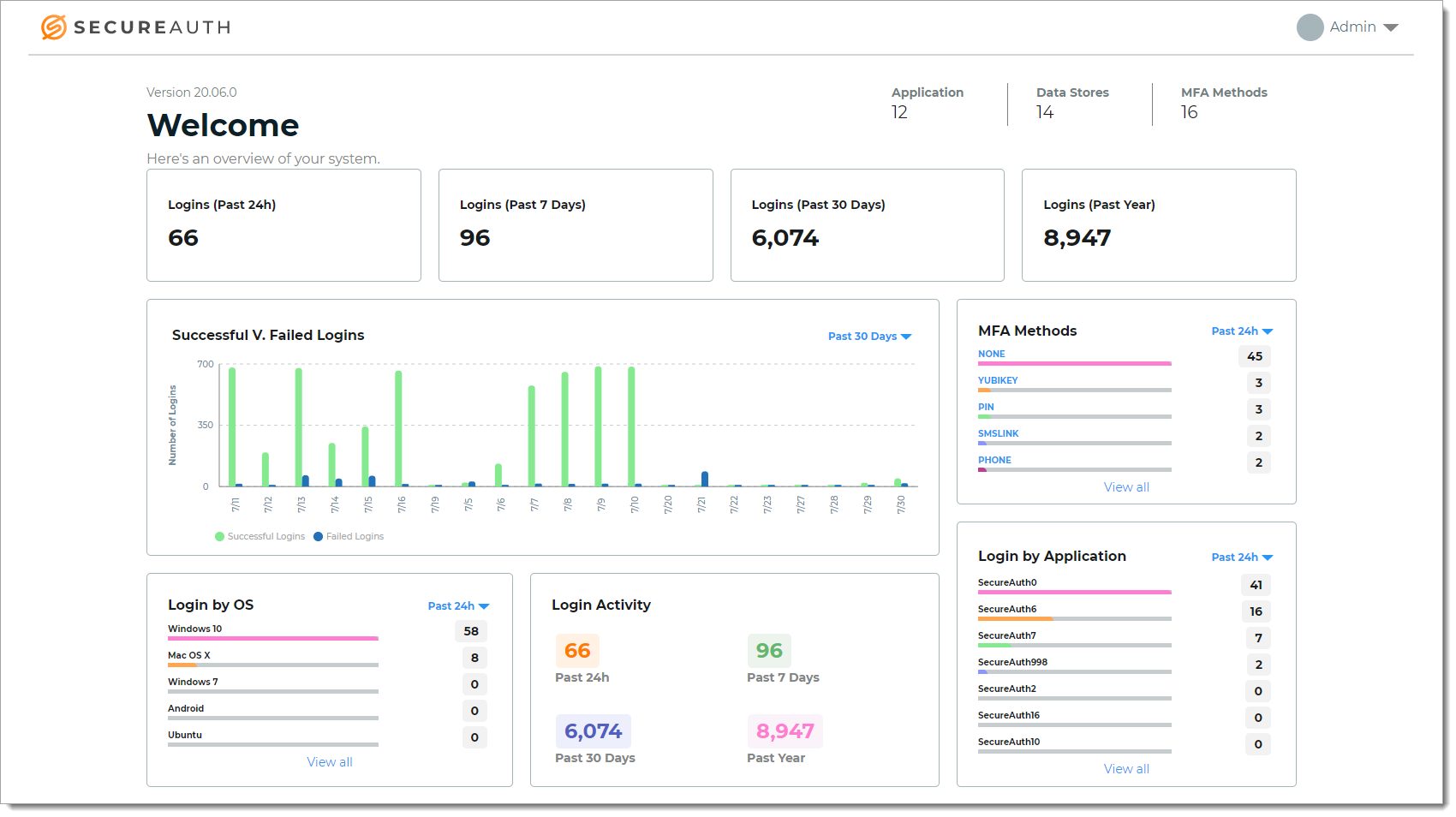
SecureAuth is an identity and access management platform that offers adaptive authentication, SSO, and user self-service capabilities. By leveraging risk-based authentication and supporting a wide range of authentication methods, SecureAuth enables organizations to secure access to applications, systems, and data while providing a seamless user experience.
Key features of SecureAuth
- Adaptive authentication that dynamically adjusts authentication requirements based on risk factors like device, location, and behavior
- Extensive library of MFA methods, including biometrics, mobile push, and hardware tokens
- SSO with pre-built integrations for popular cloud and on-premises applications
- User self-service options for password reset, account unlock, and device management
Benefits:
- Offers a flexible, risk-based approach to authentication that balances security and usability
- Integrates with third-party security tools to enhance risk analysis and automate threat response
- Enables rapid deployment and scalability through a cloud-based delivery model
Rippling: Protect and manage data access all in one place
While many providers offer solid core SSO functionality, Rippling takes it to the next level by unifying identity and access management with a full-featured HR platform. This allows Rippling to deliver SSO capabilities that standalone solutions simply can't match.
For example, Rippling leverages its deep understanding of each employee's role, location, department and device to enforce granular access policies and spot anomalous login behavior. It can prevent a sales rep from accessing finance apps or block an employee logging in from an unexpected foreign country. If an employee is terminated in the HR system, Rippling instantly revokes their access across all apps.
With Rippling, employees have a single place to access all their work tools and resources. The platform's prebuilt app shops, support for custom SAML or SCIM apps, RPass entries, and bookmarked URLs all adhere to role-based access, ensuring that your staff always has reliable access to exactly what they need.
By integrating SSO with identity management, device management, and security monitoring, Rippling offers a comprehensive, automated solution for protecting data while enabling employee productivity. It's an ideal choice for organizations looking to streamline access management as they scale.
Frequently asked questions
What are the benefits of using SSO solutions?
The main benefits of SSO include:
- Improved security via stronger passwords and centralized access policies
- Increased productivity by reducing login friction and password resets
- Simplified provisioning and deprovisioning as employees join and leave
- Better visibility and control over account access and app usage
- Easier regulatory compliance with access monitoring and reporting
What is required for SSO?
To implement SSO, you'll need a reliable identity provider (IdP) that supports standard protocols like SAML or OIDC. The IdP will need to be integrated with your target applications, either through pre-built SSO connectors or custom APIs. You'll also need to define your user roles and access policies to determine who can access which apps and under what conditions. Finally, have a clear rollout plan that covers configuration, testing, user training, and adoption monitoring. Proper planning and change management is key to a successful SSO deployment.
What problems does SSO solve?
SSO addresses critical issues for modern businesses by mitigating the risk of weak, reused passwords and reducing credential compromise through the use of a single strong password. It saves productivity by eliminating the need to manage separate logins and frequent password resets. Additionally, SSO streamlines account provisioning, provides visibility into access privileges, and ensures consistent access policies, easing regulatory compliance through centralized controls and auditing.
Schedule a demo with Rippling IT today
This blog is based on information available to Rippling as of July 30, 2024.
Disclaimer: Rippling and its affiliates do not provide tax, accounting, or legal advice. This material has been prepared for informational purposes only, and is not intended to provide or be relied on for tax, accounting, or legal advice. You should consult your own tax, accounting, and legal advisors before engaging in any related activities or transactions.









